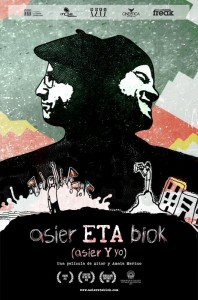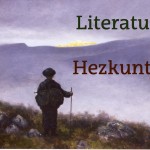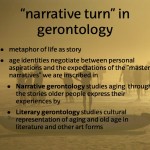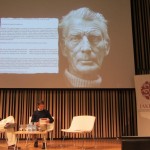 I’m just back from a great conference at the University of La Laguna, on Vulnerability, Justice and Global Ethics. I have been off the bioethics frontline for a while and conferences help us all touching base again, recovering an awareness of what is going on in the field, what the main challenges are and how can they be tackled. I am really grateful to the organising committee, as well as to all the colleagues and friends whom I met in these two days, for doing all the hard work necessary for this conference to happen. This conference was particularly hospitable and well-run. Continue reading
I’m just back from a great conference at the University of La Laguna, on Vulnerability, Justice and Global Ethics. I have been off the bioethics frontline for a while and conferences help us all touching base again, recovering an awareness of what is going on in the field, what the main challenges are and how can they be tackled. I am really grateful to the organising committee, as well as to all the colleagues and friends whom I met in these two days, for doing all the hard work necessary for this conference to happen. This conference was particularly hospitable and well-run. Continue reading
Category Archives: English
The Butterfly and the Diving Bell
We need narratives to make sense out of life, even when apparently there remains very little to live. Illness is often experienced as a disturbing break of the link between past, present and future, and therefore one of the ends of healthcare might be the recovery of some integrated experience by means of narrative. (Of course, narratives can be deceptive, but that does not invalidate the former.) I hope tomorrow we will see that when watching together The Butterfly and the Diving Bell; in addition, we will have the privilege of having Ezequiel Di Paolo watch the film with us. Then he will be sharing with us his research on Locked-in syndrome, published here:
Also, for a commentary of the film from a physician’s point of view, go here.
Why Asier, why?
Ok, so our international course on bioethics and film is here at last. I am very excited because it is a wonderful opportunity to test ideas in a multicultural and multidisciplinary environment, and this kind of group is usually very focused and enthusiastic about what we will be doing together in these two weeks: watch films, discuss them together, read articles, write papers, and explore new places.
 The main goal is to understand a set of compelling bioethical issues by deliberating upon the common ground of stories provided by the movies, and to do it in a comparative way, paying attention at how cultural differences shape our ethical expectations and reactions. That’s one of the reasons why we selected Asier ETA biok (Asier and I), which at first sight is clearly not a film about healthcare. But it is a film about ethics, about the moral dilemmas that many people in the Basque Country have experienced in the last 50 years. Continue reading
The main goal is to understand a set of compelling bioethical issues by deliberating upon the common ground of stories provided by the movies, and to do it in a comparative way, paying attention at how cultural differences shape our ethical expectations and reactions. That’s one of the reasons why we selected Asier ETA biok (Asier and I), which at first sight is clearly not a film about healthcare. But it is a film about ethics, about the moral dilemmas that many people in the Basque Country have experienced in the last 50 years. Continue reading
Landscape and health
 My colleague Laura Menatti defended her award-winning PhD dissertation at the UPV/EHU in late 2014; I was selected to serve in the evaluation committee and ever since it has been a pleasure to discuss and advance with her our common interests on landscape. We both want to account for both its culturalist and the naturalist aspects, giving each side its due. We argue that humans are in a co-determinant relationship with landscape: we perceive landscape as we live in it, but we also build it, and this double bind affects our health. How? To answer this question Laura and I have been working together for more than a year, and this is the first published result, in a top psychology journal:
My colleague Laura Menatti defended her award-winning PhD dissertation at the UPV/EHU in late 2014; I was selected to serve in the evaluation committee and ever since it has been a pleasure to discuss and advance with her our common interests on landscape. We both want to account for both its culturalist and the naturalist aspects, giving each side its due. We argue that humans are in a co-determinant relationship with landscape: we perceive landscape as we live in it, but we also build it, and this double bind affects our health. How? To answer this question Laura and I have been working together for more than a year, and this is the first published result, in a top psychology journal:
In this time not only I have learnt a lot from Laura, Leo, and Arantza; we are also building and developing this theory upon previous work published by members of our group such as Alvaro, Mateo, Xabier, Hanne, Ezequiel, and Argyris (check the references in the paper). It is not usual to find in the humanities such a good team work!
Intensive Course: Exploring Bioethics through Film
 UNIVERSITY OF THE BASQUE COUNTRY (UPV/EHU), DONOSTIA – SAN SEBASTIAN, MAY 9-19, 2016
UNIVERSITY OF THE BASQUE COUNTRY (UPV/EHU), DONOSTIA – SAN SEBASTIAN, MAY 9-19, 2016
This is the 2nd time we host this international program in collaboration with Case Western Reserve University. Taught by faculty from CWRU and UPV/EHU this course offers students a cross-cultural perspective on bioethics in the United States and Spain. This course uses the medium of film, complemented by readings in bioethics, film criticism, and medical research, to introduce students to a number of compelling bioethics issues. Attendance to HEFA (Faculty of Education, Philosophy, and Anthropology) activities free of charge for IAS-Research members, UPV/EHU researchers, “Filosofía, Ciencia y Valores / Filosofia, Zientzia eta Balioak” master students and anyone who expresses an interest on the topic. Free registration and more info: antonio.casado@ehu.eus.
Continue reading
More on narrative ethics in health care
 “Enduring tedium over real time in a confined space is what real courage is.” (David Foster Wallace). Well, academics know about this kind of courage, but the quote comes from an article using a short story by DFW to illuminate narrative autonomy in health care.You can download the full text here by courtesy of Cambridge University Press.
“Enduring tedium over real time in a confined space is what real courage is.” (David Foster Wallace). Well, academics know about this kind of courage, but the quote comes from an article using a short story by DFW to illuminate narrative autonomy in health care.You can download the full text here by courtesy of Cambridge University Press.
Active and healthy ageing
Ageing is one of the main challenges of our time. We live longer, but for this to be a real achievement it has to be better understood and socialised. Active and Healthy Ageing (AHA) is a complex phenomenon and it requires a multidisciplinary approach such as the one SIforAGE is providing in Europe.
That’s why last Friday SIforAGE, GISME and Jakiunde organised a public seminar in the framework of the Krisiak project, aiming at understanding crises as opportunities to develop social innovation, creativity and social change.
Bioethics, literature, & narrative autonomy
Last summer we spent two very good months at the Philosophy Department, University of Bristol. Their wonderful hospitality made it possible for me to finish an edited volume that is forthcoming, and also this article, which I presented in a workshop there and has just been published in Cambridge Quarterly of Healthcare Ethics, first view. Continue reading
Merleau-Ponty & Lawrence de Arabia / a puzzle for bilingual phenomenologists
This is passage from M-P’s Phenomenology of Perception that I keep turning around in my head:
“Hence the full meaning of a language is never translatable into another. We may speak several languages, but one of them always remains the one in which we live. In order completely to assimilate a language, it would be necessary to make the world which it expresses one’s own, and one never does belong to two worlds at once.” (The translation by Colin Smith comes from the Routledge Classics 2002 edition, p. 218)
M-P provides an interesting footnote as evidence to support his claim. By no one else but D. E. Lawrence:
‘In my case, the effort for these years to live in the dress of Arabs, and to imitate their mental foundation, quitted me of my English self, and let me look at the West and its conventions with new eyes: they destroyed it all for me. At the same time I could not sincerely take on the Arab skin: it was an affectation only. Easily was a man made an infidel, but hardly might he be converted to another faith. I had dropped one form and not taken on the other, and was become like Mohammed’s coffin in our legend. . . . Such detachment came at times to a man exhausted by prolonged physical effort and isolation. His body pledded on mechanically, while his reasonable mind left him, and from with- out looked down critically on him, wondering what that futile lumber did and why. Sometimes these selves would converse in the void; and then madness was very near, as I believe it would be near the man who could see things through the veils at once of two customs, two educations, two environments.’ (T. E. Lawrence, The Seven Pillars of Wisdom, Jonathan Cape, pp. 31–2.)
I wonder how could this fit with Kleist’s idea that language comes by as we speak…
Zizek on Buddhist Ethics
A wildly funny, provocative yet respectful discussion of Western Buddhism and its relationship to cognitive science and contemporary society. This public open lecture by Slavoj Žižek for the students and faculty of the European Graduate School includes references to D. T. Suzuki, capitalism, science, ideology, neuroscience, psychology, psychoanalysis, Lacan, Hegel, bodhisattvas, samsara, enlightenment, karma, nirvana, war, samurai, Japan, Thomas Metzinger, free will, Benjamin Libet, Martin Heidegger, Patricia and Paul Churchland, Star Wars, The Lion King… In Youtube




